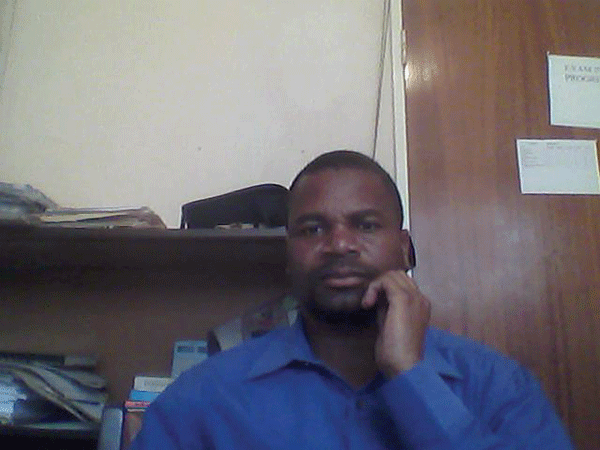
COMFORT can simply be interpreted as the absence of discomfort. People experience discomfort under different circumstances and often they end up so used to the uncomfortable environments that they appreciate and accept the situations as normal, and as part of their survival too. Accepting bad situations as normal is a dangerous way of interacting with one’s environment as the environment is there to sharpen people’s worldview to become innovative and creative.
By Peter Makwanya
Some of the factors which contribute to environmental discomfort are issues of pollution (land, water and air), excessive temperatures (too hot or too cold), lack of meaningful harvests and food security, inability to think anew as well as climate induced disasters. In order to live and thrive in the comfort zone, all the factors mentioned above, would be managed, when the people can trust and believe in themselves, that they can change their situations for the better.
It is always easy to make situations bad, but very difficult to transform the sad events into meaningful achievements and create opportunities. It is also important that people should live in truth and stop comforting themselves with lies as well as celebrating mediocrity.
The African continent and other developing countries have lived in environmental mirage and false glory for quite a long time. Citizens of developing countries, because of false glory and some imagined successes, they lack innovative ideas to improve their livelihoods. Empowerment always starts with an individual before support comes your way and then comfort follows. Comfort is worked for, it is not harvested; and patience is a virtue worth practising.
The environment is available, especially for the youth to thrive eco-prenuership wise, so that they turn the climate impacts into lucrative opportunities, for the comfort that they want. It is absurd for them to expect someone from somewhere to come and uplift them from poverty yet they have God-given wisdom to get themselves out of poverty and live comfortably.
Environmental challenges in our midst should spur the youths to come up with innovative ideas to improve the situations around them, shape their destiny and come out of the false comfort zones and glory. It is regrettable for the people to view themselves as having comfortable lives yet they don’t have any control over their lives and situations because they lack intrinsic motivation and self-esteem. People are always told that their already deteriorated environment will get better hence their living standards would improve and this stops them from participating in critical thinking to come up with solutions to their problems.
As the people continue to live in a mirage, they forget that the environment is there as a laboratory of opportunities ready to be explored and utilised for greater things. It is not easy to break out of the false comfort zone, especially when the climate is not ideal and they have internalised all the negatives. The most difficult thing to do is to change one’s mindset because the problem is not always the environment, stupid, but the mind lacking orientation. The mental security that has been induced into the youths of developing countries is not sincere and exact.
- Chamisa under fire over US$120K donation
- Mavhunga puts DeMbare into Chibuku quarterfinals
- Pension funds bet on Cabora Bassa oilfields
- Councils defy govt fire tender directive
Keep Reading
It started from the term, “third world” countries to the discourse of “developing countries’” where false hope has been created, by making these countries as if they are indeed developing yet they are not and its only in the mind. The discourse of “developing” is wrongly situated in order to facilitate misinformation and falsehoods, designed to stifle real opportunities for growth.
To the youths in Africa, it is good to analyse their perceived comfort zones to enable them to see if there are real opportunities for growth or they are just mirages. They need to look around their imagined comfort zones and establish how many goods and services they are producing or importing rather. Is there any value addition in their lives in the process or to the situations of their countries? The environment is full of green opportunities that can add value to their situations and those of their countries.
As individuals we need to reflect and take stock of how much we have been contributing to the successes of other people instead of only our own situations. The youths need to harness the drive and ambitions to achieve more without damaging the environment. They need to make successes in their particular environments by adapting appropriately and realise the comfort that they crave for.
But this is not an easy process as some people don’t want to be assisted to get out of their false comfort zones, not knowing that, without feeling uncomfortable in our situations, they will never realise the benefits of life.
Life is full of positives which many are failing to realise and can be utilised sustainably. Communities need to break the shackles of fear and doubts, realise how much they are worth and create opportunities for eco-prenuership.











